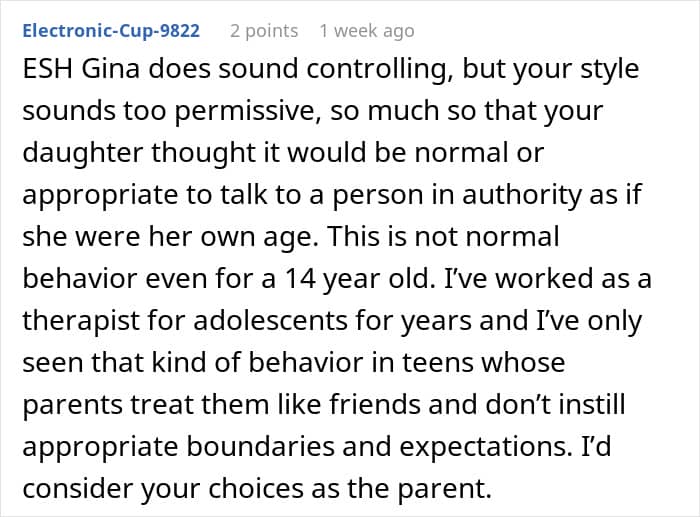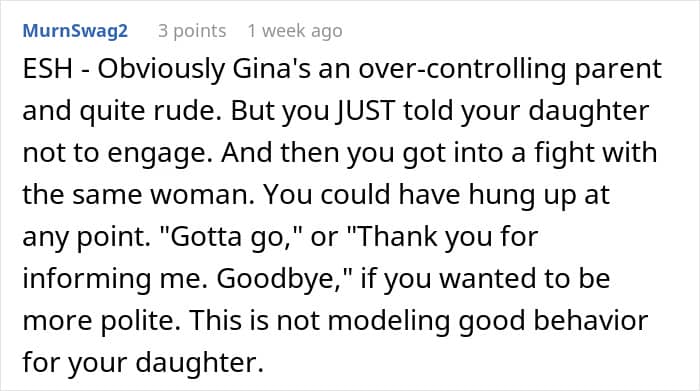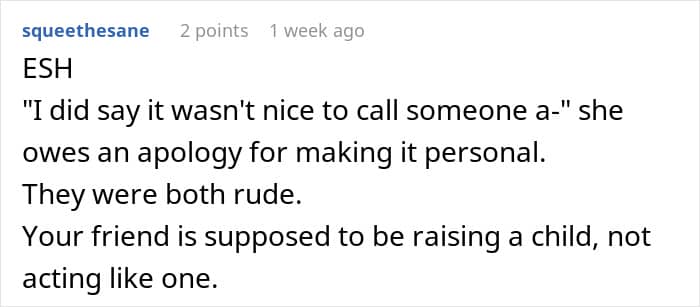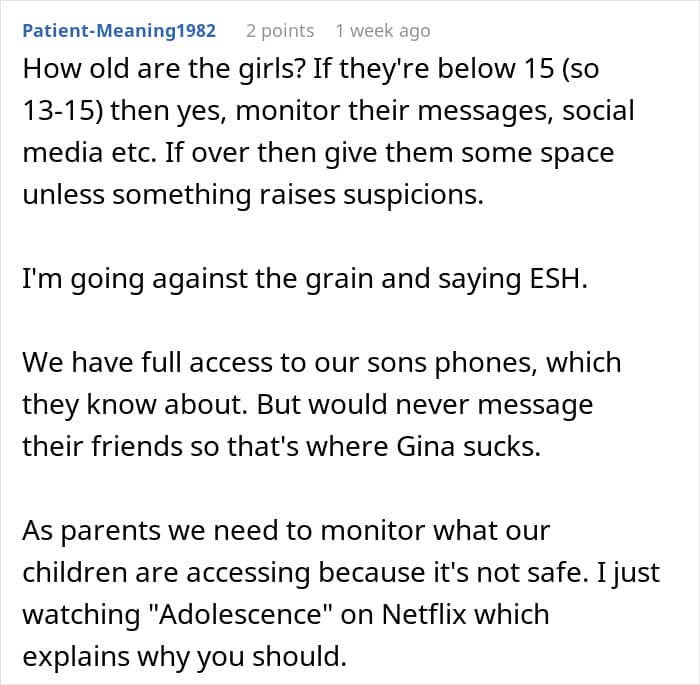Parenting teenagers can be hard at the best of times. There’s no set manual on how to do things. And not everyone will agree with the way you choose to raise your children as they make their way into adulthood. Some moms believe you should keep your teen on a tight leash, while others prefer to give them lots of freedom.
Two parents clashed recently when it became apparent that their parenting styles did not align. Their daughters are friends… The one thinks it’s okay to intercept her 14-year-old’s phone. The other, not so much. Things got really heated when the “strict” mom decided to reprimand the other parent for failing to discipline their child properly. Netizens are divided over how each of them handled the situation. We reached out to Lisa Smith for advice on raising teenagers. She’s a parent coach and the founder of The Peaceful Parent.
RELATED:This mom is known for checking her daughter’s phone and responding to texts

When she got called a “weirdo” by one of her teen’s friends, all hell broke loose
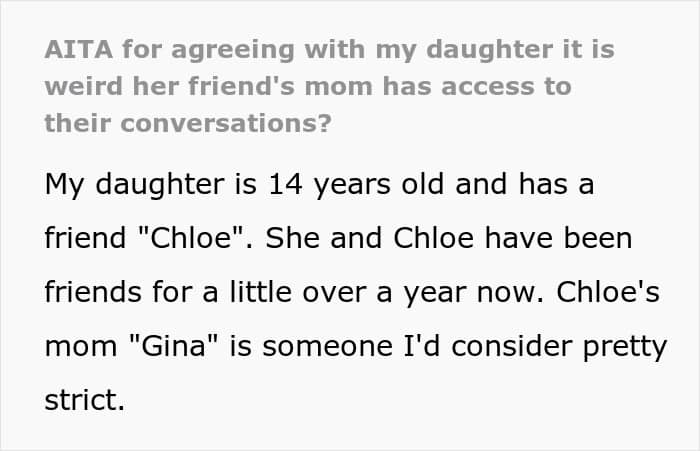
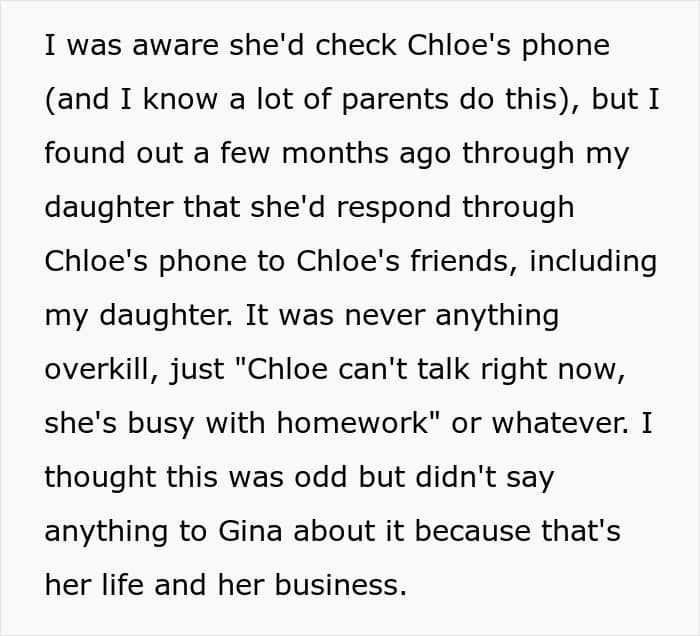
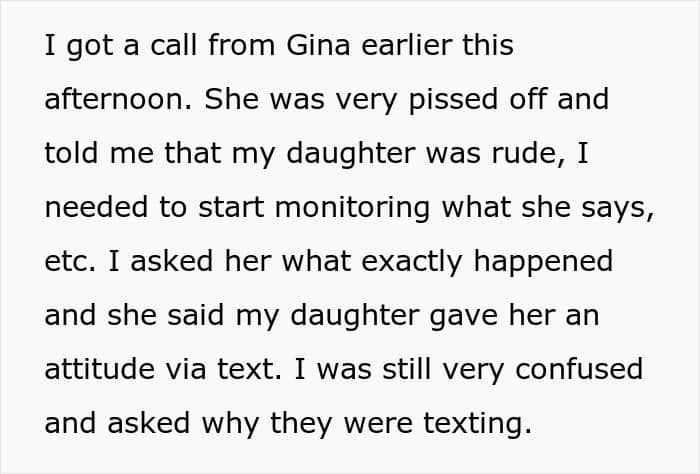
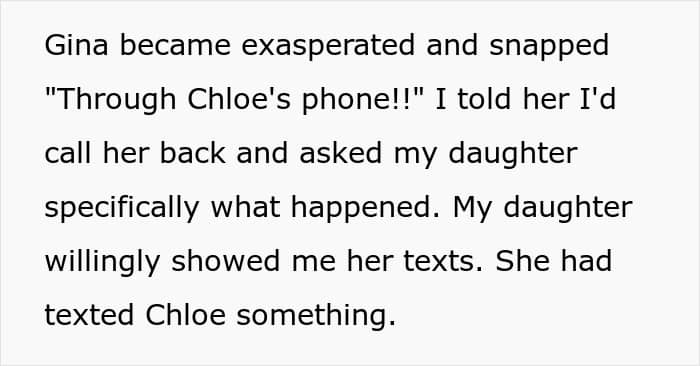
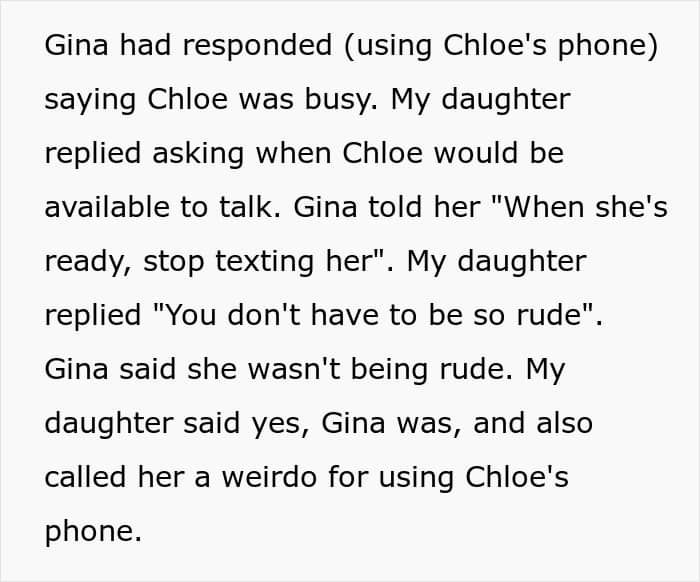
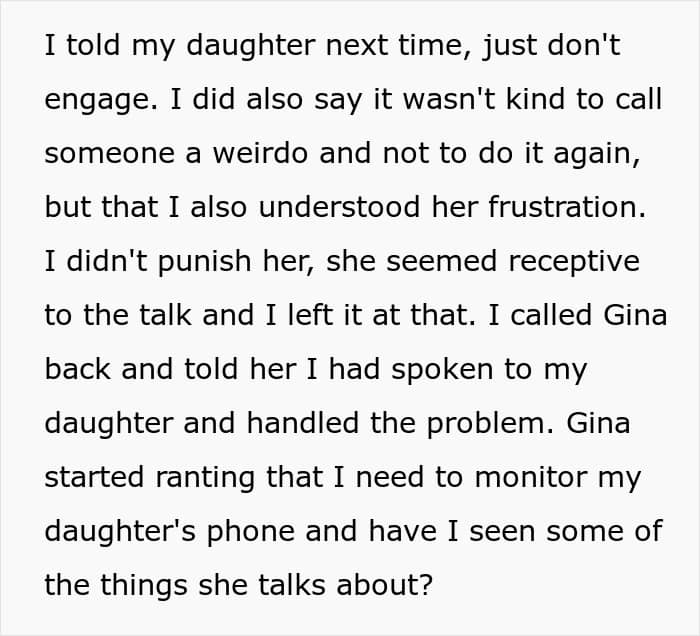
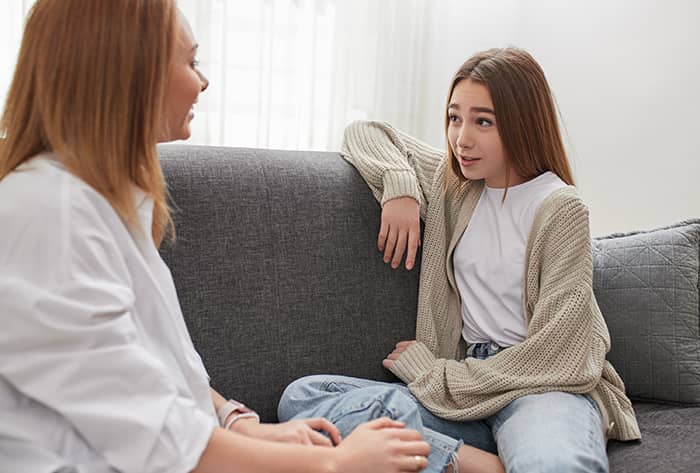
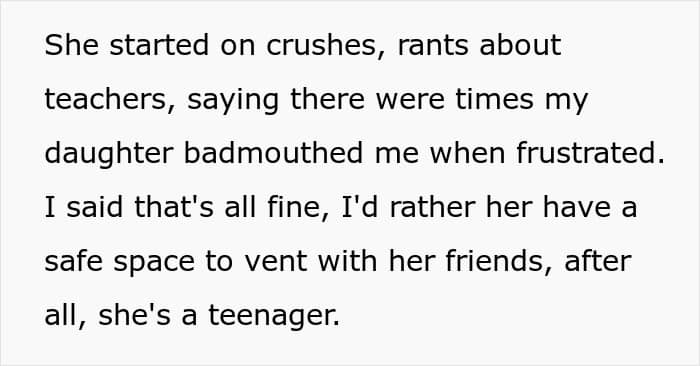
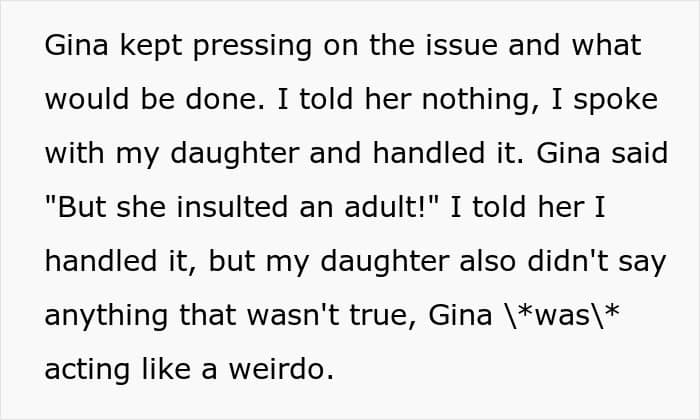
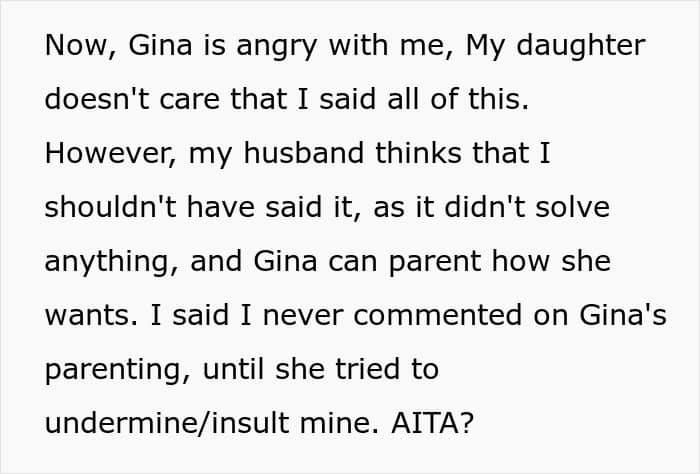
“Instead of full access, I advocate for full connection”: an expert weighs in

There can often be conflict between teenagers and their parents when it comes to privacy. The parents have a need to know more, while the teens have a want to share less. The teenage or adolescent years are a time when soon-to-be adults are pushing for autonomy and freedom. Many test the boundaries as they explore and seek out their independence.
Teenagers might become more secretive because they may fear judgment or punishment from parents. They might feel pressured by their peers and friends to do things that they don’t think their parents would approve of.
“It’s important to remember that the teen years span a huge range of emotional maturity and brain development,” says parenting expert Lisa Smith when we reach out to her. The parent coach and founder of The Peaceful Parent told We that a teen’s brain changes as they grow up.
“A 13-year-old’s prefrontal cortex is still in the early stages of growth, which means they’re far more impulsive, reactive, and in need of scaffolding than, say, a 17-year-old, who’s closer to functioning as a young adult,” explained Smith. “So the way these ideas land will (and should) shift depending on your child’s age, temperament, and lived experience. What feels like overstepping with a 16-year-old might be necessary containment for a vulnerable 12-year-old.” The expert says as parents, the work is to attune — not control — and to adapt as our child grows.
The experts over at mypostiveparenting.org say that open communication and trust are key to maintaining a healthy parent-teen relationship. This means parents should aim to create a safe and non-judgmental environment so that their teenager feels comfortable talking about their thoughts, feelings, and experiences.
“Encourage regular conversations about their day, interests, and concerns,” reads the site. “Be an active listener to what they have to say without jumping to conclusions or passing judgement.”
They add that you can show your teen you trust them by respecting their privacy and giving them space to make their own decisions. “Avoid interrogating or constantly questioning them about their activities, as this can cause resentment,” warns the site.
Smith agrees. We asked her whether parents should have full access to their teenagers’ phones or devices. “I think the deeper question here is: Does my child trust me enough to come to me when it matters?” she replied. “Full access can feel protective to the parent, but it often feels invasive to the teen — like we’re saying, ‘I don’t believe you can handle your life.’ And while some kids do need more scaffolding due to developmental or mental health needs, blanket phone access can backfire if it erodes trust.”
“Instead of full access, I advocate for full connection,” added Smith. She believes that if your relationship is strong, and if your teen feels emotionally safe with you, then they’re far more likely to come to you before something becomes a crisis.
We wanted to know Smith’s thoughts on the mom intercepting her daughter’s texts and replying to friends. “This is where I’d gently ask that mom: ‘Is this about helping your child… or about controlling the image of your child?’ Teens want to manage their own social lives. If they’re too overwhelmed to respond to a friend, maybe the real issue is: Why do they feel they can’t just say that themselves?”
The expert says when we speak for our kids, we risk robbing them of the very skills we hope they’ll develop — boundary-setting, time management, and emotional honesty.
Experts are divided over whether it’s okay to go through your teenager’s phone. While some say it’s a big no-no, others feel it’s not only fine but absolutely necessary. “We are giving our kids way more than ‘just a phone’ when we give them a smartphone,” cautions digital wellbeing speaker Dr. Kristy Goodwin. “They have a camera, the internet, apps, and a plethora of other potential dangers when they access a phone.”
SecureTeen is a safety app that allows parents to monitor their children’s call logs, messages, social media accounts, location, and other things. But they warn that while tracking can help keep your teen safe and keep you in the know, it can never replace the bond and love between a parent and child.
“If you haven’t developed that love and understanding yet, and you are about to track them, you are in danger then,” reads the site.
When it comes to the teen calling her friend’s mom “a weirdo,” Smith says she isn’t too surprised. “Honestly? That friend was just expressing what a lot of teens feel when adults cross an unspoken line: ‘You’re in a space that doesn’t belong to you.’ It’s not about being rude — it’s about boundaries,” she explained. “Teens are learning to individuate, and adults stepping into their peer conversations can feel jarring and intrusive. It’s a call for more respectful distance, not necessarily disrespect.”
Some people needed more info before they could come to a conclusion about the situation
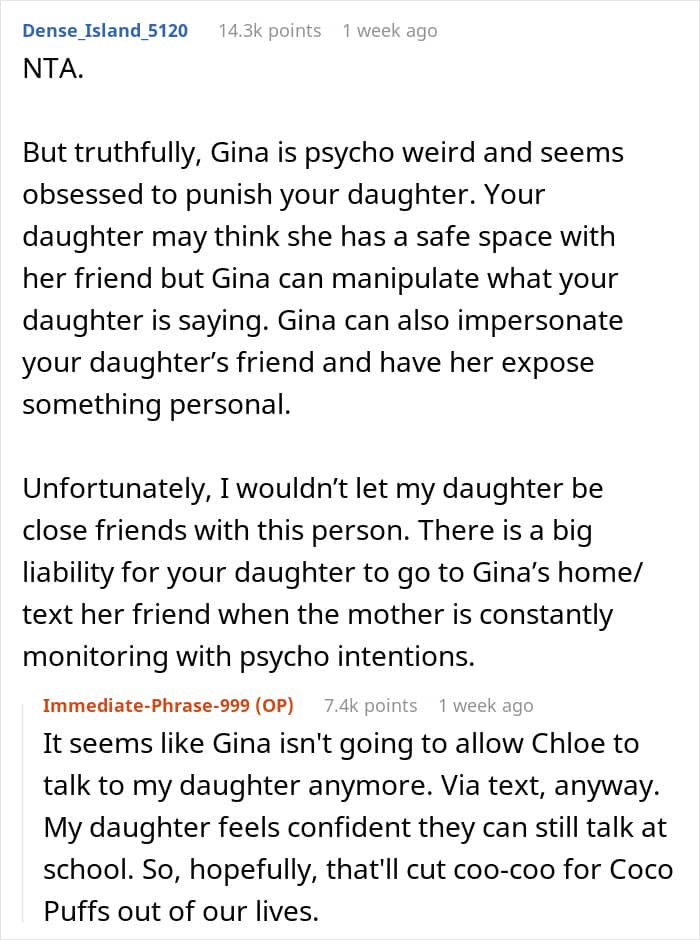
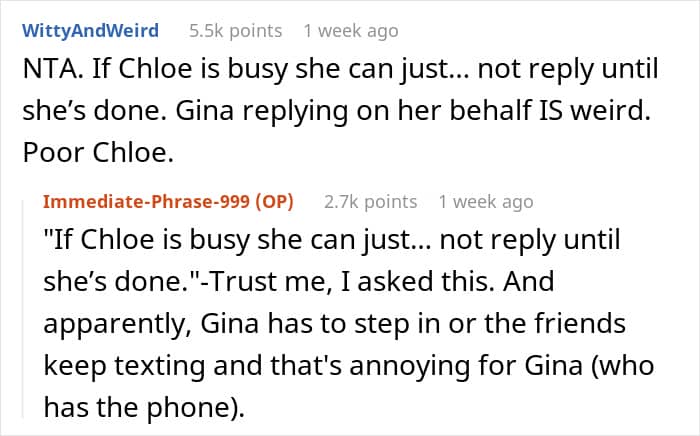
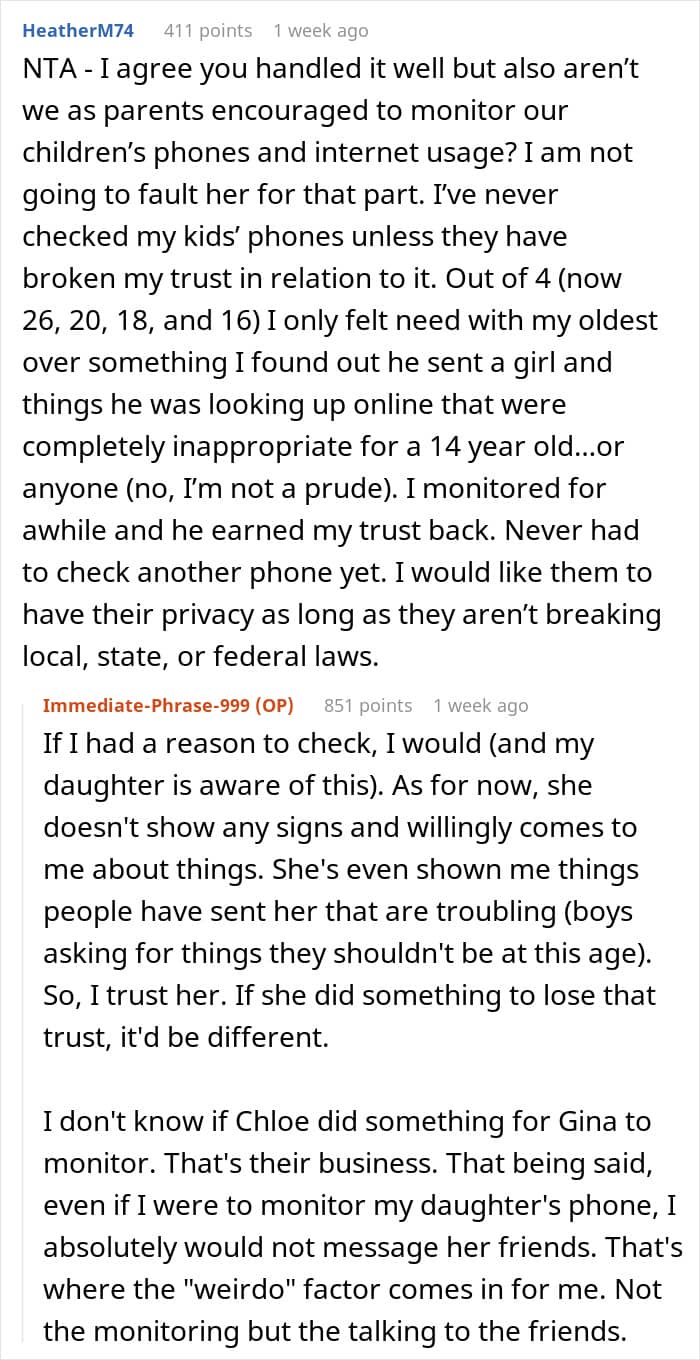
Many netizens felt Gina was out of line and should not invade her daughter’s privacy
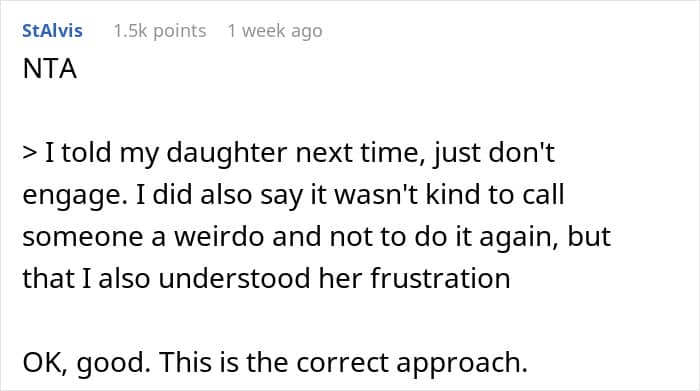
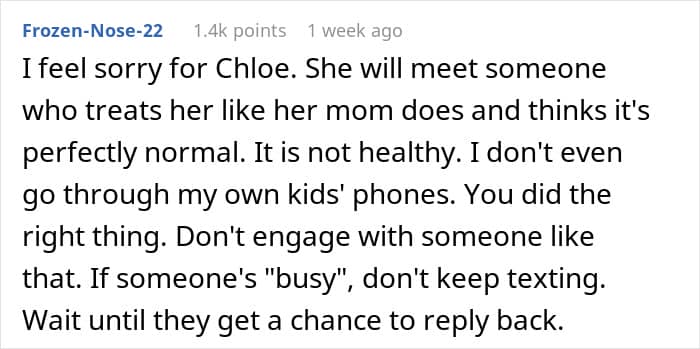
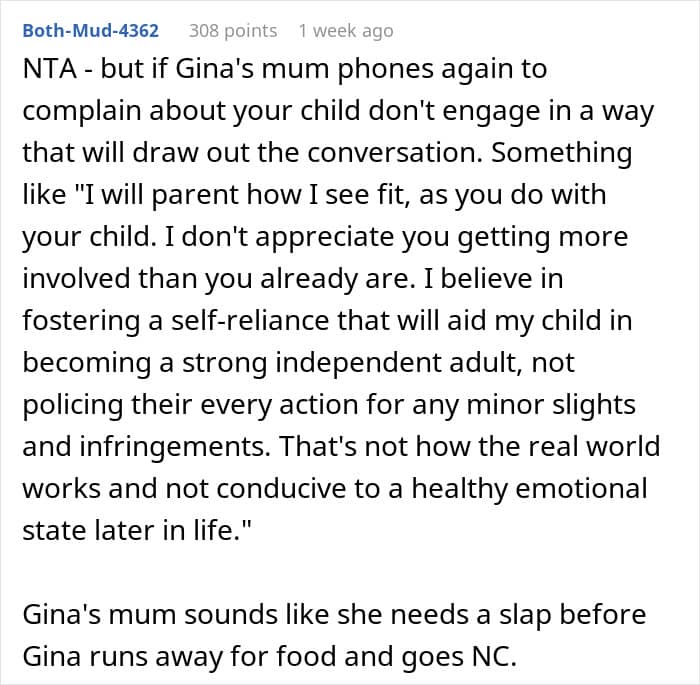
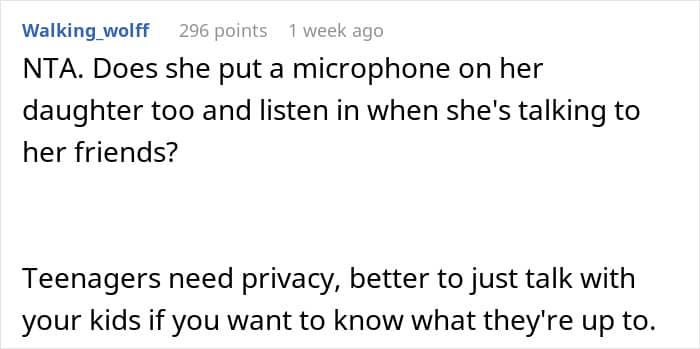
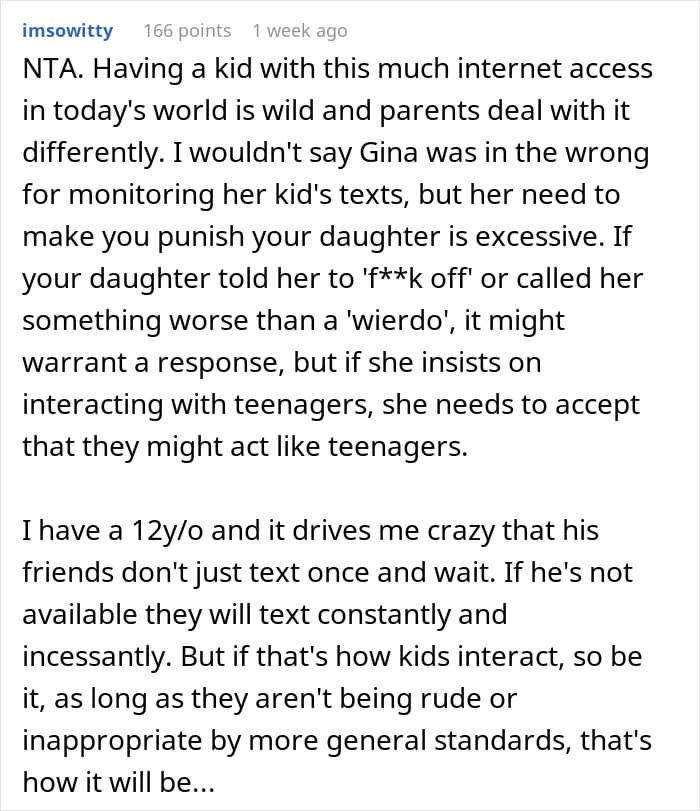
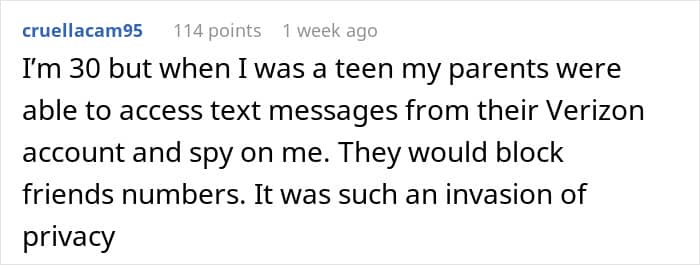
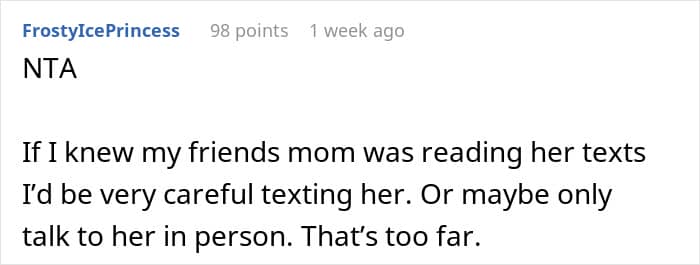


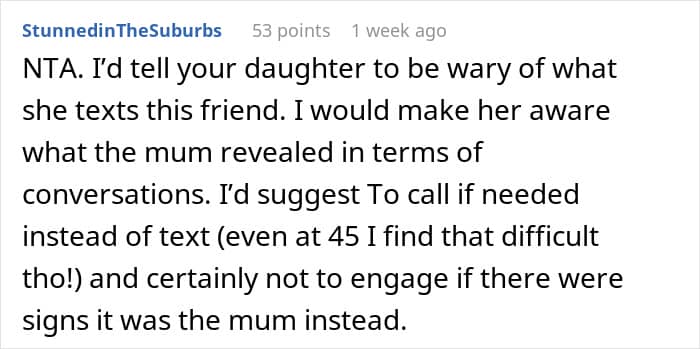

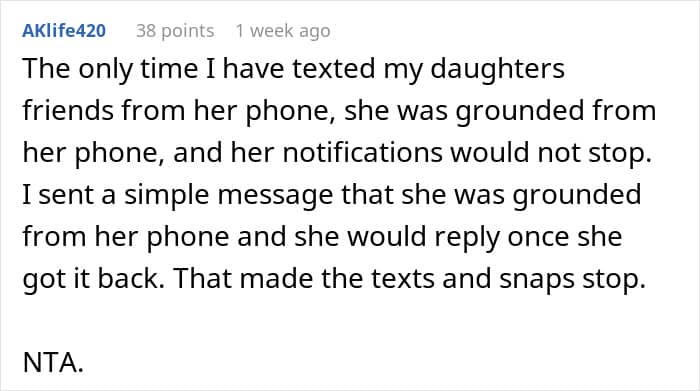



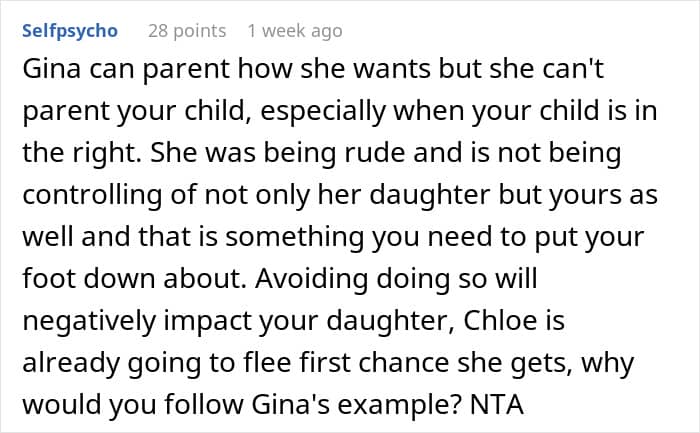
Not everyone agreed, with some saying Gina was within her rights to set boundaries
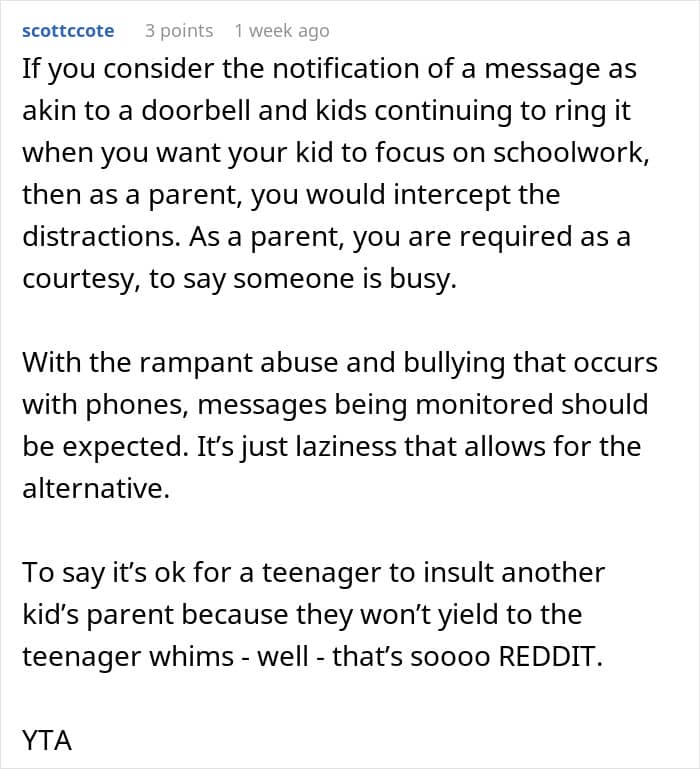
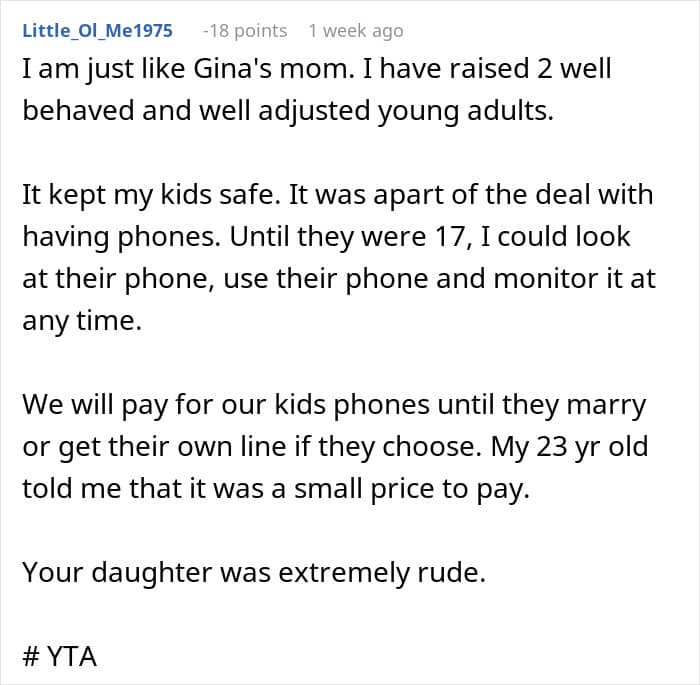
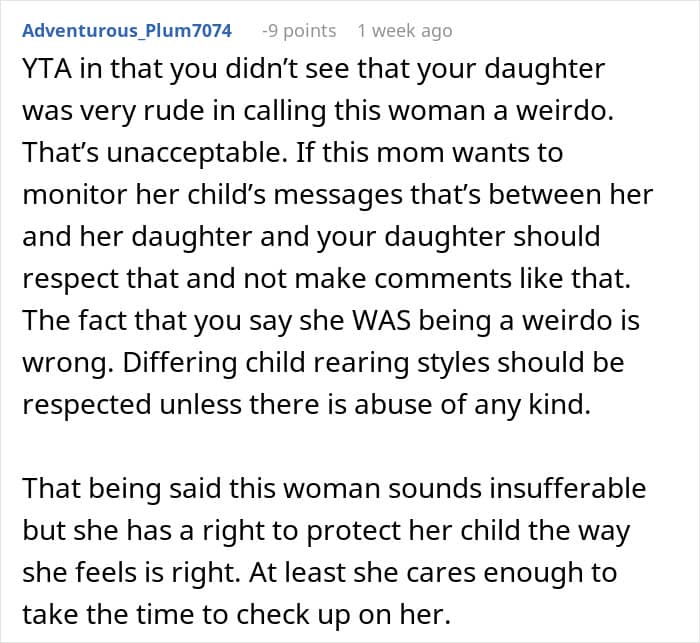
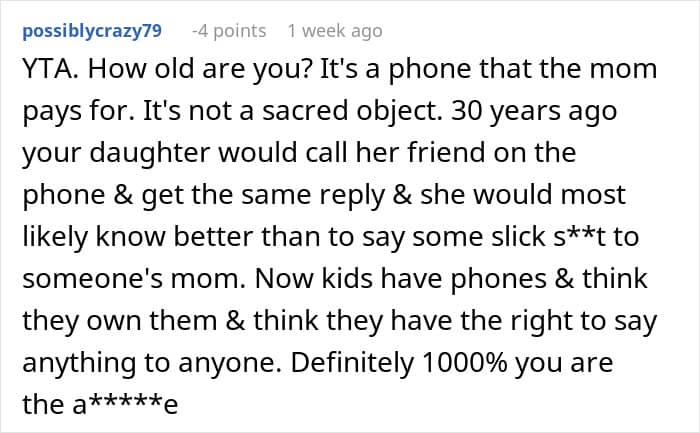
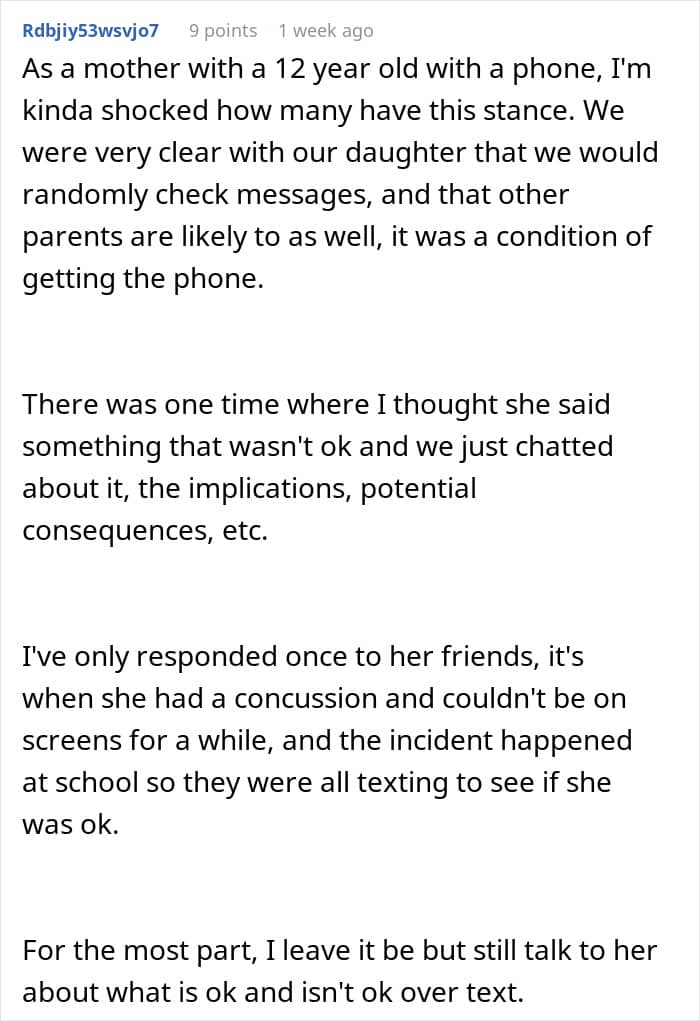
Some felt that both parents were in the wrong and they should set a better example for their teens
